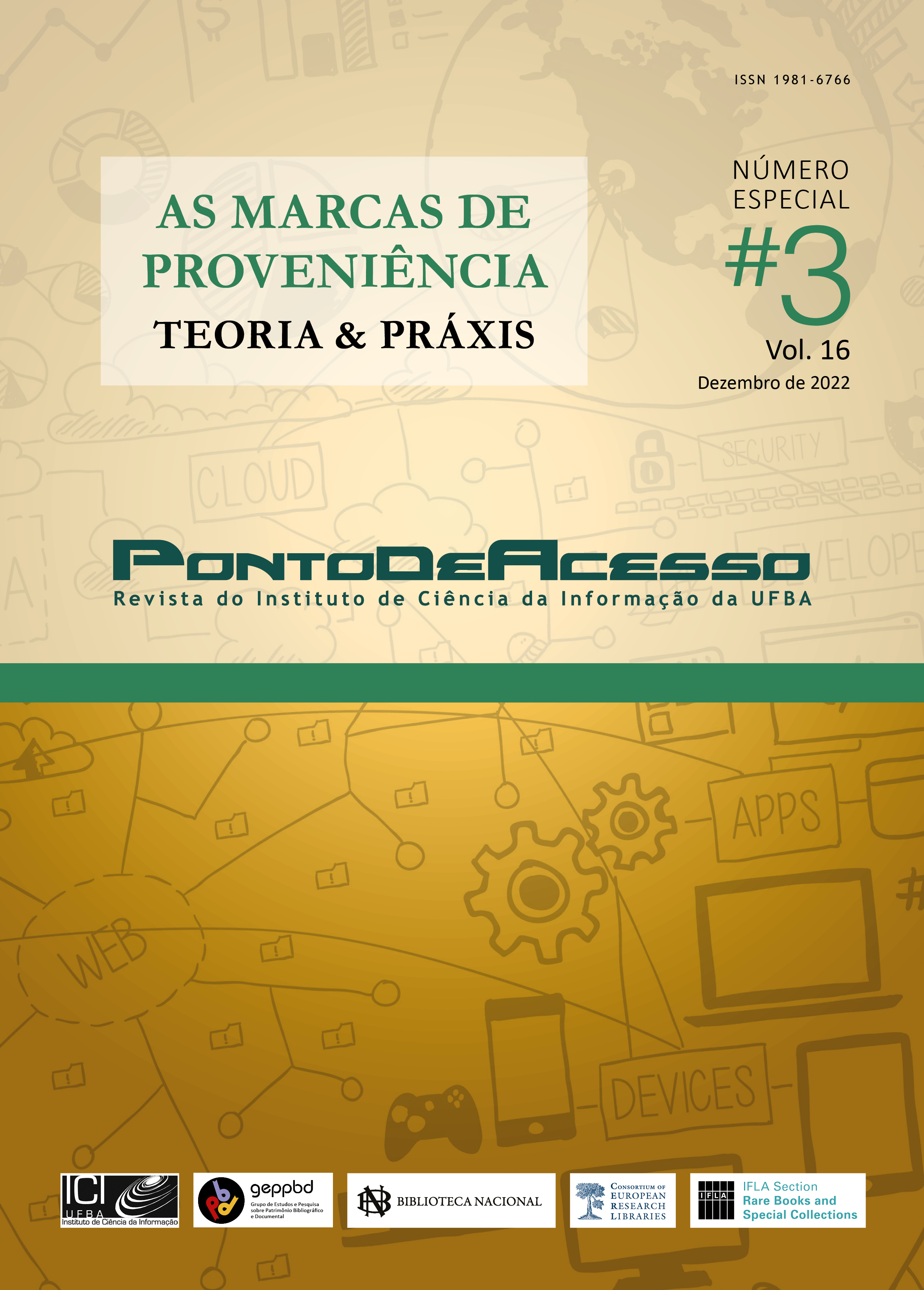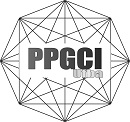BOOK OWNERS ONLINE
A DATABASE TO SUPPORT PROVENANCE RESEARCH
DOI:
https://doi.org/10.9771/rpa.v16i3.52297Keywords:
Provenance, Data, Book Owners, Information, CollectionsAbstract
Launched in August 2020, the Book Owners Online was built as a collaborative project between the Bibliographical Society and the University College London, designed to be scalable and flexible with the aspiration to expand both chronologically and geographically. Initially containing data for around 1400 English seventeenth-century book owners, the number of entries has grown to more than 1800, covering Scottish as well as English owners, and moving into the 18th century. The Book Owners Online platform is meant to be a place to start, not one to end, providing overview information to further sources of reference. It does not aspire to list all the books a person owned; the entries conform to a standard structure, with several fields which will be filled depending on the nature of the evidence. They include a name with at least a date of birth or death, a narrative field on “Books” aiming to summarise what we know about their library, and at least one source of further information. Like all online databases of this nature, providing a source of reference and information to support other works, it is conceived as being always a work in progress.
Downloads
References
Annoted Books Online. Home. [internet]. Avaiable from: https://www.annotatedbooksonline.com/ (accessed 4 April 2021).
Benedict, P. & Léchot, P-O., The library of Elie Bouhéreau, in M. McCarthy and A. Simmons (eds), Marsh’s Library: a mirror on the world, Dublin, 2009, 165-84, 183.
Book Owners Online. [internet]. Avaiable from: https://www.facebook.com/groups/424763118619629 (accessed 4 April 2021).
Carter, John. Taste and Technique in Book Collecting (London: Private Libraries Association, 1970), 9.
Challoner, J. A new manuscript compilation of Katherine Philips, The Library, 7th ser 17 (2016), 287-316, 299.
Consortium European Research Libraries (CERL). Material evidence incunabula. [internet]. Avaiable from https://data.cerl.org/mei/_search (accessed 2 April 2021).
Consortium European Research Libraries (CERL). Owners incunabula. [internet]. Avaiable from: https://data.cerl.org/owners/_search (accessed 2 April 2021).
Coolahan, M-L & Empey, M. ‘Women’s book ownership and the reception of early modern women’s texts’, in Leah Knight et al (eds), Women’s bookscapes in early modern Britain (Ann Arbor: University of Michigan Press, 2018), 231-52.
Crowdsourcing. In: Wikipedia. [internet]. Avaiable from: https://en.wikipedia.org/wiki/Crowdsourcing#Definitions (accessed 4 April 2021).
Dondi, Cristina (ed), Printing R-evolution and Society 1450-1500: Fifty Years that Changed Europe (Venice: Edizioni Ca’Foscari, 2020).
Fehrenbach, R. J. et al (eds), Private Libraries in Renaissance England (New York and elsewhere, 1992-); [internet]. Avaiable from: https://plre.folger.edu/ (accessed 6 April 2021).
Library things. What are legacy library?. [internet]. Avaiable from: http://www.librarything.com/legacylibraries (accessed 6 April 2021).
Pearson, David. ‘The English Private Library in the Seventeenth Century’, The Library 7th ser 13 (2012), 379-399.
Pearson, David. The libraries of English bishops 1600-1640, The Library 6th ser 14 (1992), 221-57, 229.
Pearson, David. Book Ownership in Stuart England (Oxford: Oxford University Press, 2021).
Pearson, David. Bookowners online: about. [internet]. Avaiable from: https://www.bookowners.online/About (accessed 4 April 2021).
Pearson, David. Bookowners online: user guide. [internet]. Avaiable from: https://bookowners.online/User_Guide (accessed 2 April 2021).
Pearson, David. Bookowners online. [internet]. Avaiable from: https://bookowners.online/Main_Page (accessed 2 April 2021).
Pearson, David. John boys. [internet]. Avaiable from: https://bookowners.online/John_Boys (accessed 2 April 2021).
Pearson, David. Patterns of book ownership in late seventeenth-century England, The Library 7th ser 11 (2010), 139-167, p.147.
Pearson, David. Provenance Research in Book History (Oxford: Bodleian Library, 2019), ch.6, pp.162-218.
Seymour de Ricci, English Collectors of Books and Manuscripts (1530-1930) and their Marks of Ownership (Cambridge: Cambridge University Press, 1930); a more recent example is William Baker and Kenneth Womack (eds), Pre-nineteenth-centuryBritish Book Collectors and Bibliographers (Detroit: Gale, 1999).
Simon Eliot, ‘The Reading Experience Database: problems and possibilities’, Publishing History 39 (1996), 89-97.
The Early modern female book ownership. About this blog. [internet]. Avaiable from: https://earlymodernfemalebookownership.wordpress.com/ (accessed 6 April 2021);
The Open University. The UK RED: Reading Experience Database. [internet]. Avaiable from: http://www.open.ac.uk/Arts/reading/UK/index.php (accessed 4 April 2021);
University of London. School of Advanced Study. The Zoom session of the presentations at the symposium was recorded and is available here: https://www.sas.ac.uk/videos-and-podcasts/culture-language-and-literature/bibliographical-society-book-owners-online (accessed 6 April 2021).
University of Oxford. The 15c Booktrade. [internet]. Avaiable from: https://15cbooktrade.ox.ac.uk/ (accessed 2 April 2021).
Downloads
Published
How to Cite
Issue
Section
License

This work is licensed under a Creative Commons Attribution 4.0 International License.
A PontodeAcesso utiliza a licença do Creative Commons (CC), preservando assim, a integridade dos artigos em ambiente de acesso aberto. A revista permite que o autor retenha os direitos de publicação sem restrições.








